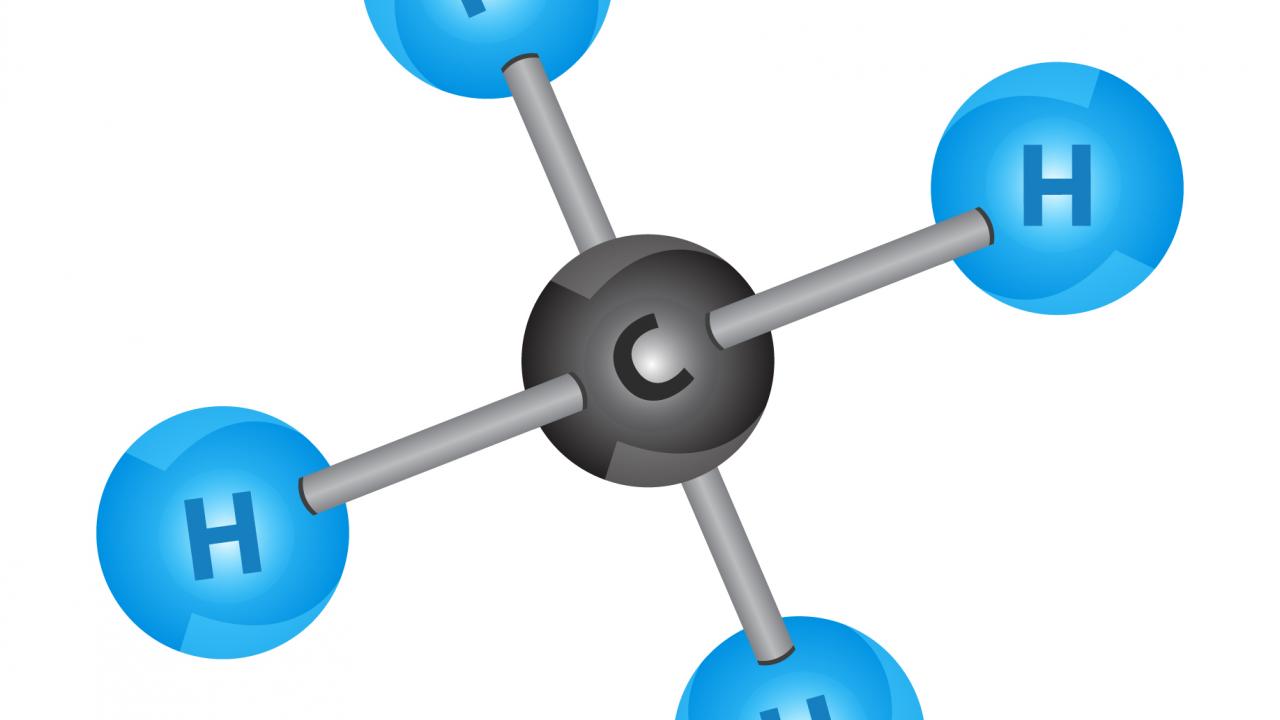
What is Methane?
Methane (CH4) is a gas composed of carbon and hydrogen. It’s a highly flammable gas that is colorless and odorless. In fact, when there was a major methane leak in Southern California in 2016, the leak could only be seen using a special camera.
Methane is a main component in natural gas, which we use to power and heat our buildings and homes. According to the EPA, about 10.2 percent of greenhouse gases caused by humans are in the form of methane. While there is more carbon dioxide in the atmosphere, methane has a global warming potential approximately 28 times greater than CO2 over a 100-year period. Because of a chemical reaction in our atmosphere, methane has a lifespan of around 10 years before being converted into CO2 and water.
Human activities that release methane into the atmosphere include leaks from natural gas systems, disposing of food and the raising of ruminant livestock. You can find natural sources of methane, such as wetlands. However, 50-65 percent of global methane emissions are generated by humans.
The sources of methane emitted by human activity include: the energy and industry sector, agriculture, manure management, and landfill waste from homes and businesses. Ruminant agricultural livestock, which includes cattle, buffalo, sheep and goats, naturally produce methane as part of their digestive process. Methane from cattle tends to get a lot of scrutiny, but in the U.S., cattle are responsible for 3.7 percent of total U.S. GHG emissions when adding in feed production, fuel and electricity use, etc. Transportation is responsible for 29 percent of greenhouse gas emissions, while energy is responsible for 28 percent, according to the EPA.
Recent research has focused on the natural carbon cycle in regard to cattle and their methane emissions, noting that we can look at the methane cattle belch as part of a cyclical process that has been running since life began on Earth. Essentially, the methane cattle release is captured by the plants they eat, only to be released again after they have consumed the plants.
Methane released during the extraction, refining and transport of fossil fuels is not a natural or cyclical process. It’s taking methane from the earth and injecting it straight into the atmosphere.
There are no doubt ways to reduce our methane emissions, in both animal agriculture and our use of fossil fuels. Research at UC Davis has looked at various feed additives as a way to reduce methane belched from cows.
